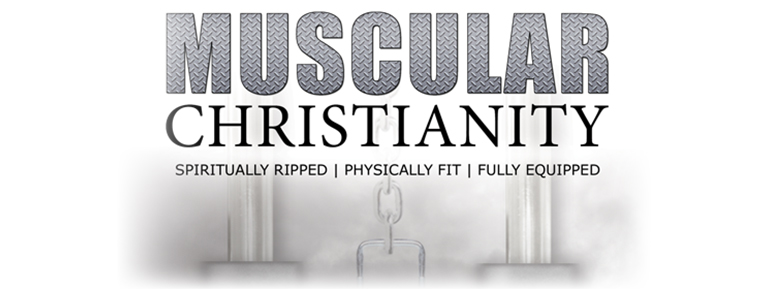What Does it Mean to be Saved | Part I
The following is the script used as part of the “Muscular Christianity Podcast,” which you can access by clicking here.
I) Intro
Hey guys, today we’re going to be talking about what it means to be born again.
This is going to be a three-part series. The first part we’re going to talk about what does it mean to be saved. In the second part we’ll look at how do you get saved and in the third part will examine how you can know that you’re saved.
Listen, this is important stuff because there’s some people who are walking around thinking that if they simply form the words on their lips, “Yes, I believe that Jesus died and came back to life,” somehow that translates to them being born again.
And that’s not necessarily the case. We’re going to talk more about that later in Part II, but when you consider the fact that the demons believe that Jesus Christ died and came back to life (Matt 7:21-23; Jas 2:19), you need to have more than just a verbal acknowledgement on your spiritual resume before you can accurately claim to be a believer.
But here’s the thing: You can’t base your convictions on another person’s opinion or a particular tradition or even a familiar denomination.
You have to go by what it says in God’s Word.
It’s because the subject matter is so important that you can’t afford to allow any type of human convention to substitute for the Truth as its defined in Scripture.
Now, if you’re listening to this broadcast and you’re among those that are just looking for some simple and easy to remember sound bites, let’s get you taken care of.
What does it mean to be saved? It means all the ways in which you’ve rebelled against God have been forgiven. Colossians 2:13-14 says:
When you were dead in your sins and in the uncircumcision of your flesh, God made you[a] alive with Christ. He forgave us all our sins, 14 having canceled the charge of our legal indebtedness, which stood against us and condemned us; he has taken it away, nailing it to the cross. (Col 2:13-14)
But the other piece of the salvation package is this: You have been fundamentally changed. It’s not that you’ve changed your mind as much as He’s changed you.
You can see that in Galatians 2:20 where it says:
I have been crucified with Christ and I no longer live, but Christ lives in me. The life I now live in the body, I live by faith in the Son of God, who loved me and gave himself for me. (Gal 2:20)
Forgiven and transformed – that’s what it means to be saved.
There’s your Executive Summary! Let’s now take a closer look at how Scripture defines Salvation.
II) What Does it Mean to be Saved?
Bottom line, the Holy Spirit – and by the Holy Spirit, I’m talking about the Character (Gal 5:22-23) and the Mindset of God (1 Cor 2:16) – that is now a part of who you are as a person (Eph 1:13-14; Titus 3:5).
You see that in Romans eight verse nine.
You however are not in the realm of the flesh, but are in the realm of the Spirit if indeed the Spirit of God lives in you. If anyone does not have the Spirit of Christ, they do not belong to Christ. (Rom 8:9)
Let’s read that last part again because that is either the game changer or a deal breaker: “If anyone does not have the Spirit of Christ, they do not belong to Christ.”
Now, bear in mind that the Spirit of God isn’t a mere add on or a plug in.
Whereas before you were spiritual corpse, now you have a spiritual pulse. You have been made completely new:
2 Corinthians 5:17.
Therefore, if anyone is in Christ, the new creation has come, the old is gone, the new is here. (2 Cor 5:17)
Everything that prevented you from obeying God rather than yourself, every inclination you had to go up to God as He was sitting on His Throne and telling Him to get out of your chair, has been replaced with the capacity to choose His Strength and His Perspective over your own.
The Bible says that prior to Christ breathing life into the spiritual part of your existence, you were a slave to sin (Prov 5:22; Jn 8:34; Rom 6:17; Eph 2:5). This doesn’t mean that you were giving in to every vulgar and heinous thought that crossed your mind, necessarily. What it does mean is that you measured everything according to the standard of yourself (Phil 3:19).
As a spiritual corpse (Eph 2:1), whether you’re imitating a Christlike demeanor or you’re operating as a criminal, you are your own bottom line and in that context you are never serving anyone other than yourself (Is 64:6; Matt 6:24-26). And however you want to pose as someone who is willing to subordinate themselves to a higher authority or a greater good, you submit only to those that meet with your approval. In that way, you are perpetually at war with your Creator which is the essence of sin (Rom 8:7).
But now, as someone who has a spiritual pulse, you are no longer hostile to God. And while you can still ignore Him and choose to rebel against His Authority, you now have a choice to use the Power and Perspective He offers to follow His Instructions and enjoy all the benefits of obedience (Jn 10:10; 1 Cor 10:13).
And while the Holy Spirit is now making a huge difference in the way you live your life, it’s His Spirit that serves as His Signature, come the day you stand before him after you pass away (Heb 9:27).
21 Now it is God who makes both us and you stand firm in Christ. He anointed us, 22 set his seal of ownership on us, and put his Spirit in our hearts as a deposit, guaranteeing what is to come. (2 Cor 1:21-22 [see also Lk 10:20])
Paul is talking about Heaven in this verse. When your body gives out, all that makes you the person that you are continues to exist in one of two environments – you’re either living in Heaven as someone who’s been redeemed, or you’re suffering in hell having chosen to reject the Gift that God made available to you in the context of His Son having bled, suffered and died on your behalf (1 Jn 2:2; Rev 20:15).
So what does it mean to be saved?
It means that you’re now a different person because of the way the Holy Spirit directs and empowers you. And it’s that same spirit that Scripture refers to as a seal of ownership that will validate your citizenship in heaven.
That’s what it means to be saved.
Christ living in and through you now and being able to call heaven your home after you breathe your last.
That’s part one, folks.
Buckle up now for Part Two of this Salvation Series.
I’m Bruce Gust with Muscular Christianity.
Let’s go make a difference.










You must be logged in to post a comment.